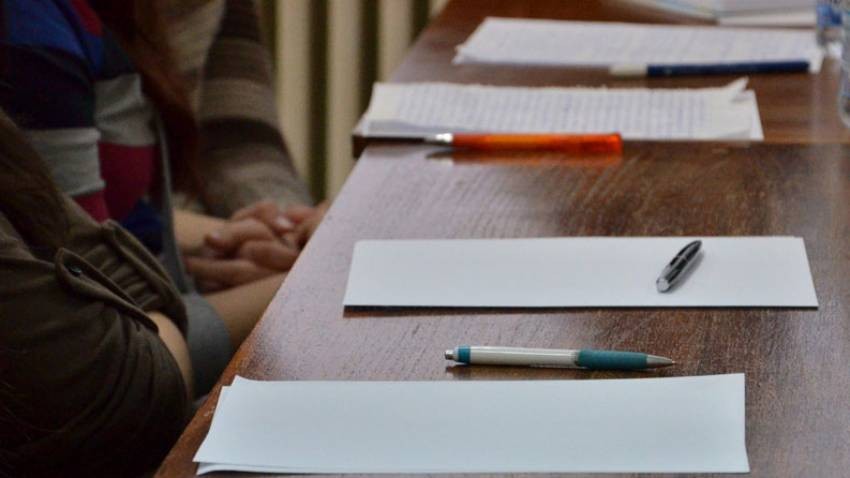75 805 applications for obtaining Bulgarian citizenship were submitted from 1 January 2020 to 24 November 2023. These figures were announced in parliament at the end of 2023 by former Minister of Justice Atanas Slavov in response to a question from an MP. Next, Radio Bulgaria will explain the conditions for acquiring Bulgarian citizenship.
Bulgarian citizenship can be acquired on the following grounds:
- by birth – It can be acquired by any person born on the territory of Bulgaria.
- by descent - when at least one parent is a Bulgarian citizen; when the person is adopted by a Bulgarian citizen; or when the Bulgarian descent is established by a court decision.
- by naturalisation.
The conditions for acquiring Bulgarian citizenship by naturalization are as follows:
- the person must be an adult;
- the person must have obtained a permanent or long-term residence permit in Bulgaria at least 5 years ago;
- the person must not have been convicted of an intentional crime, unless rehabilitated;
- the person must have an income or occupation that enables him/her to support himself or herself in Bulgaria;
- the person must have a knowledge of Bulgarian – Individuals who have completed primary or secondary education in a Bulgarian school in Bulgaria or abroad, or those who have completed higher education in Bulgaria, certify their language proficiency with a diploma from the educational institution. Others must present an official document confirming successful completion of a written exam in Bulgarian.
- the person has been released from his/her current citizenship or be released from it at the time of acquiring Bulgarian citizenship.

Exceptions:
Who can acquire citizenship without meeting the above requirements?
- a person of Bulgarian descent;
- a person whose at least one parent is a Bulgarian citizen;
- a person adopted by a Bulgarian citizen;
- If the Republic of Bulgaria has an interest in his/her naturalization, or if the person has special merits to the Republic of Bulgaria in the social and economic sphere, in the field of science, technology, culture and sports.
Exemption from the requirement to renounce their current citizenship is granted to:
- spouses of Bulgarian citizens;
- citizens of an EU Member State, a state party to the Agreement on the European Economic Area or Switzerland;
- citizens of countries with which Bulgaria has reciprocity agreements, i.e. their country does not require Bulgarians to renounce their citizenship.
The requirement for a residence of at least 5 years in Bulgaria with a permit for long-term or permanent residence is reduced to 3 years when:
- a person has been married to a Bulgarian citizen for at least 3 years;
- was born in Bulgaria;
- has obtained a permanent or long-term residence permit before reaching an adulthood; or
- was granted refugee status at least 3 years ago.
Where does the Bulgarian language exam take place?
- The exam can be taken at the Center for Evaluations in the Pre-school and School Education (Sofia, 125 Tsarigradsko Shose Blvd. building 5).
Persons living abroad can take the exam at the respective diplomatic or consular representation of Bulgaria.
The Bulgarian language exam is a test with 20 questions. Applicants have one hour to answer them. The test is considered successfully passed if the candidate answers correctly at least 12 questions.
Samples of the exam can be found on the website of the Center for Evaluation in Pre-school and School Education - www.copuo.bg
Photos: BGNES; archiveA colorful Easter celebration under the slogan “Let’s sing and dance on Easter, on the square” will take place today in the open air in the town of Stara Zagora. A number of folklore groups and singers from the region will take care of the good..
Sugar artist Mariya Ozturk's latest masterpiece - a model of St Peter's Basilica in Rome - prompted us to reach out to our fellow Bulgarian during the bright holiday season. Though she’s been straddling life between Bulgaria and Istanbul for years, she..
The Bulgarian-American Cultural Association “Rosa” in Atlanta invited our compatriots to celebrate Easter today from 1:00 p.m. local time at Pinkneyville Park, Medlock Pavilion (the large pavilion) 4758 S Old Peachtree Rd Norcross, GA 30071...
In the Schaarbeek municipality of Brussels, there is a small corner of Bulgaria inside the Sophia Municipal Library, housing a valuable collection of..

+359 2 9336 661
